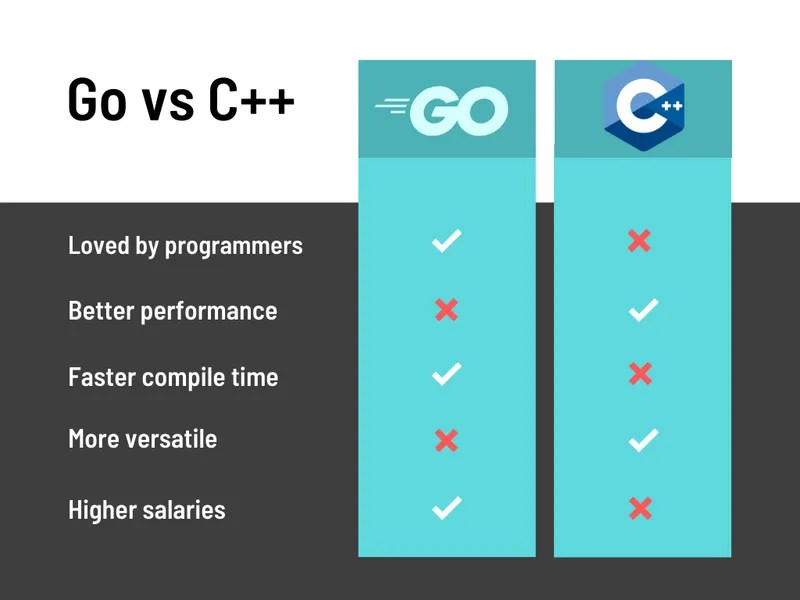C vs C++ is a topic that often sparks intense discussions among programmers and computer science enthusiasts. Both programming languages share a common ancestry, making them closely related, yet they serve different purposes and embody distinct paradigms. Understanding the nuances between C and C++ is crucial for developers when choosing the right tool for their project. This article delves deep into the fundamental differences, advantages, and use cases of both languages, helping you make informed decisions about which one to use for your programming needs.
Additionally, the evolution of programming languages has led to the emergence of various paradigms, and C and C++ are no exception. While C is procedural in nature, C++ introduces object-oriented programming concepts, which can enhance code organization and reusability. This article will explore how these differences impact real-world applications and the types of projects best suited for each language.
Ultimately, whether you are a budding programmer or an experienced developer, grasping the intricacies of C vs C++ is essential for writing efficient, maintainable, and scalable code. Let's dive deeper into the world of these two powerful programming languages and discover what sets them apart.
What is C?
C is a high-level programming language that was developed in the early 1970s at Bell Labs. It is renowned for its efficiency and flexibility, making it a popular choice for system programming, embedded systems, and performance-critical applications. C provides a foundation for many other programming languages and is often considered the mother of modern programming.
What is C++?
C++, developed by Bjarne Stroustrup in the early 1980s, is an extension of the C programming language. It incorporates object-oriented features, enabling programmers to create more complex and reusable code structures. C++ supports both procedural and object-oriented programming, providing developers with a versatile framework for software development.
How Do C and C++ Compare in Syntax?
The syntax of C and C++ shares many similarities, but there are notable differences that can affect how developers write and understand code. Here are some key points of comparison:
- Functions: In C, functions are defined separately, while C++ allows for member functions within classes.
- Data Types: C++ introduces new data types, such as classes, which facilitate the creation of user-defined types.
- Namespaces: C++ supports namespaces, which help organize code and prevent naming conflicts.
What Are the Key Features of C?
C has several features that make it a robust programming language:
- Low-level Access: C allows for direct manipulation of hardware and memory, making it suitable for system-level programming.
- Portability: C code can be compiled on different platforms with minimal modifications.
- Standard Library: C includes a rich standard library that provides essential functions and operations.
What Are the Key Features of C++?
C++ boasts a range of features that enhance its capabilities:
- Object-oriented Programming: C++ supports encapsulation, inheritance, and polymorphism, enabling code reuse and modular design.
- Standard Template Library (STL): C++ includes the STL, which provides powerful data structures and algorithms.
- Operator Overloading: C++ allows developers to redefine the behavior of operators for user-defined types.
Which Language Is More Efficient: C or C++?
Efficiency is a critical factor in programming. While C is known for its performance, C++ offers additional features that can enhance development speed and maintainability. However, the choice between C and C++ often depends on the specific requirements of the project:
- C: Ideal for low-level programming and performance-critical applications.
- C++: Better suited for large-scale projects where code organization and reusability are priorities.
In What Scenarios Should You Use C vs C++?
Choosing between C and C++ often depends on the context and goals of your project. Here are some scenarios to consider:
- Use C: When working on embedded systems, operating systems, or real-time applications that require direct hardware access.
- Use C++: When developing complex software, such as game engines, graphical applications, or large-scale enterprise systems that benefit from object-oriented design.
Conclusion: C vs C++ - Which Should You Choose?
In the end, the choice between C and C++ depends on your specific needs as a developer. Both languages have their strengths and weaknesses, and understanding them is key to making the right decision. If you require low-level access and performance, C may be the better choice. However, if you need advanced features and robust code organization, C++ could be the way to go. Whichever language you choose, mastering either C or C++ will undoubtedly enhance your programming skills and open up new opportunities in the world of software development.
The Enigmatic City States Of Mesopotamia
Unlocking Opportunities: A Comprehensive Guide To StraighterLine Courses
The Intriguing Journey: The Story Of Saul


